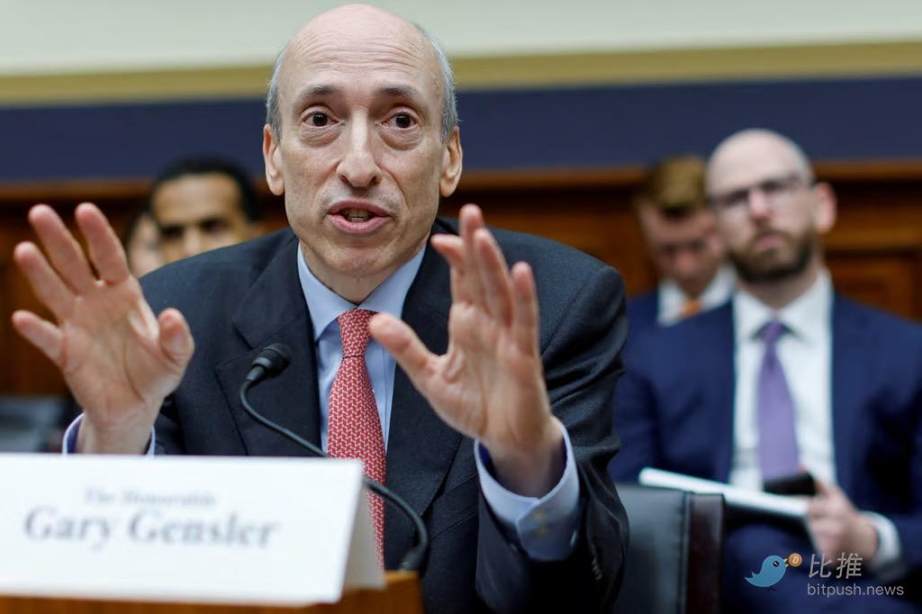Market participants should be prepared to engage with the new SEC leadership to ensure the industry's perspectives are taken into account.
Source: WilmerHale
Compiled by: BitpushNews Mary Liu
Introduction:
On November 14, Gary Gensler, Chairman of the U.S. Securities and Exchange Commission (SEC), delivered a speech at the 56th Annual Securities Regulation Conference of the Bar Association, reflecting on his experience leading the agency's team.
He stated, "I am deeply honored to work with them, serve the people, and ensure that our capital markets continue to be the best in the world… I am proud to work day in and day out with my colleagues at the SEC to protect American families in the financial markets."
This sounded much like a farewell public address. Some sources suggest that Gensler may resign, as past SEC leaders have done. However, he may also decide to continue serving as a commissioner.

Main Text:
Given Donald Trump's campaign promise to establish a government that supports cryptocurrency, his election as president could have a significant impact on the cryptocurrency industry.
Trump would be able to appoint a new SEC chairman, who may decide to take a different approach to cryptocurrency than the current chairman, Gary Gensler. Under Gensler's leadership, the SEC has initiated multiple enforcement actions against members of the crypto industry, accusing them of violating federal securities laws, including actions taken solely for failing to register as a broker-dealer, clearing agency, or national securities exchange under the Securities Exchange Act of 1934. However, the SEC has not proposed rules specifically for crypto assets but has suggested that current statutory and regulatory requirements can be applied to crypto assets.
Practitioners in the crypto industry disagree with this and report that their attempts to engage with the SEC on crypto-related issues have not been successful. However, with a new SEC chairman soon to be appointed, this approach may change, and members of the crypto industry should begin preparing to engage with the SEC once the new leadership is confirmed.
Under new leadership, the SEC could take several different approaches, including:
Suspending enforcement actions solely targeting registration violations: The SEC has taken multiple enforcement actions against cryptocurrency companies solely for violating registration requirements under the Securities Act or the Exchange Act, without allegations of fraud or other misconduct. The new SEC leadership may suspend further enforcement actions solely targeting registration violations until a clear framework is established to regulate crypto assets and crypto asset trading intermediaries.
Issuing updated guidance on when crypto assets are sold as securities: It has been over five years since SEC staff released the "Framework for 'Investment Contract' Analysis of Digital Assets," which describes the circumstances under which digital assets are offered and sold as "investment contracts" (and thus securities). Since then, significant changes have occurred in the crypto industry. For example, many crypto projects have matured and become more decentralized, and proof-of-stake consensus has become prevalent. However, the SEC has not issued additional guidance. The SEC could update the framework to account for changes in the industry over the past five years and explain why certain crypto assets (such as Bitcoin and Ethereum) are not offered and sold as securities. New guidance could also address the issue of asset-backed stablecoins, which are now one of the most prominent uses of crypto assets.

Proposing crypto-specific rules: The SEC could propose tailored rules that consider the differences between crypto assets and traditional securities. To date, despite differing opinions and legal challenges from industry members, the SEC has fundamentally refused to acknowledge the differences between crypto and traditional securities in its rulemaking. Instead, the SEC has broadly applied securities rules and indicated in proposed and adopted versions that these rules would also apply to "crypto asset securities." In some cases, these rules were finalized due to industry members' concerns about the application of these rules to crypto assets and whether the SEC was complying with the Administrative Procedure Act.
Exercising its exemption authority: The SEC could utilize the general exemption authority granted by Congress under Section 28 of the Securities Act and Section 36 of the Exchange Act to provide tailored relief that may pose challenges to crypto market participants due to the differences between crypto assets and traditional securities. The SEC could also issue additional no-action letters, declining to take enforcement action against companies engaged in certain crypto asset activities as a temporary measure until crypto-specific rules can be proposed or adopted.
Updating the special purpose broker-dealer statement: The SEC could update its temporary no-action position from 2020 to allow "special purpose broker-dealers" to execute trading and custody functions for "digital asset securities," making it more applicable to today's crypto industry and extending the deadline to February 2026. Currently, there are only two registered special purpose broker-dealers, and due to the SEC's lack of guidance on key issues, the scope of activities they are allowed to engage in and the assets they are permitted to conduct these activities with remain unclear, such as when crypto assets are offered and sold as securities. An update could make this guidance more effective.
With the Republican Party controlling both the Senate and the House, Congress may also have the opportunity to pass cryptocurrency legislation. However, even so, the SEC could still play a role in cryptocurrency regulation. Recently, bipartisan-supported bills such as the "21st Century Financial Innovation and Technology Act" and the "Lummis-Gillibrand Responsible Financial Innovation Act" have opened up space for the SEC and the Commodity Futures Trading Commission in the regulation of digital assets.
Therefore, it is crucial for cryptocurrency market participants to consider discussing these relevant topics with the new SEC government, given that Trump's campaign has made cryptocurrency a focus, and the SEC may take a different approach to cryptocurrency. Market participants should be prepared to engage with the new SEC leadership to ensure the industry's perspectives are considered.
免责声明:本文章仅代表作者个人观点,不代表本平台的立场和观点。本文章仅供信息分享,不构成对任何人的任何投资建议。用户与作者之间的任何争议,与本平台无关。如网页中刊载的文章或图片涉及侵权,请提供相关的权利证明和身份证明发送邮件到support@aicoin.com,本平台相关工作人员将会进行核查。




